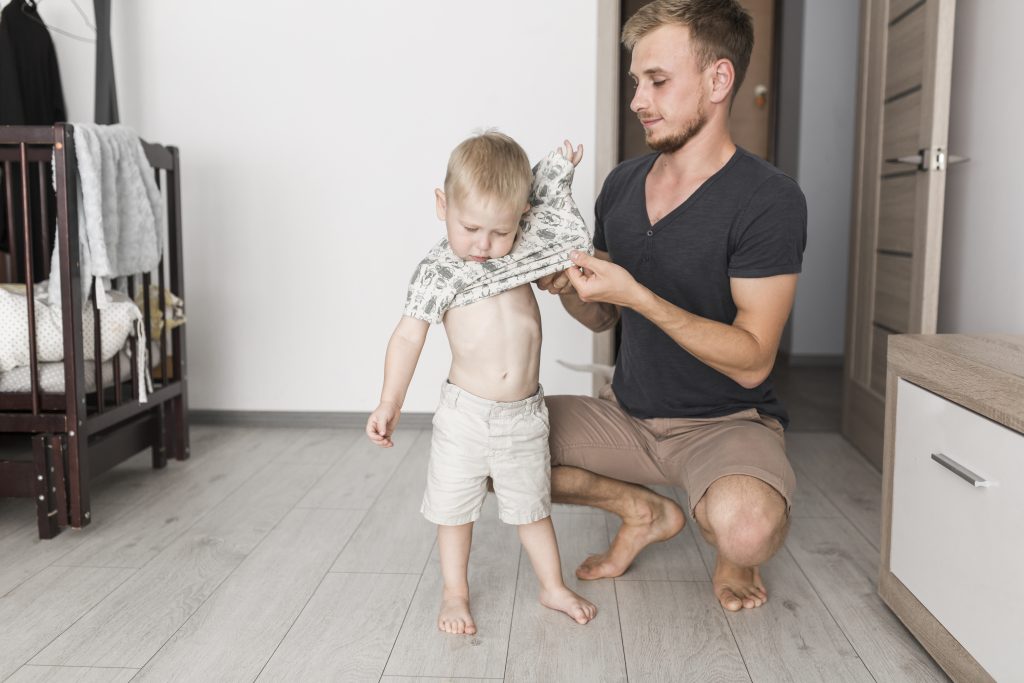Engaging Dads and Supporting Families
 To alleviate the impacts of COVID-19 policies, many initiatives have been developed by civil society organisations – NGOs, local governments, or citizens. A team of national researchers from the RESISTIRÉ project has collected and highlighted a set of particularly relevant initiatives in 27 European countries and in Iceland, Serbia, the United Kingdom and Turkey. The initiatives currently cover eight specific domains: gender-based violence, the labour market, the economy, gender-pay and pension gaps, gender care gaps, decision-making and politics, environmental justice, human and fundamental rights.
To alleviate the impacts of COVID-19 policies, many initiatives have been developed by civil society organisations – NGOs, local governments, or citizens. A team of national researchers from the RESISTIRÉ project has collected and highlighted a set of particularly relevant initiatives in 27 European countries and in Iceland, Serbia, the United Kingdom and Turkey. The initiatives currently cover eight specific domains: gender-based violence, the labour market, the economy, gender-pay and pension gaps, gender care gaps, decision-making and politics, environmental justice, human and fundamental rights.
This initiative was mapped by our national researchers in Ireland.
Engaging Dads and Supporting Families
The changing roles and experience of fathers because of Covid-19 responses – including both the opportunities and the challenges were highlighted at a Webinar “Engaging Dads, Supporting Families”, hosted by the Childhood development initiative. This is a registered Charity that aims to improve the outcomes for children by delivering quality, integrated, evidence-informed services and workforce development through partnership and innovation.
In this initiative, the domain of the gender care gap is represented as problem that can be addressed by a greater gender share of caring responsibilities. It highlights the extent to which policy responses to the pandemic have helped accelerate a change in fathers’ roles as carers, yet it has also led to other negative impacts, particularly for parents who do not live with their children, or fathers of newborn babies.
In Ireland, caregiving on children is over-focused on women and mothers while there are greater benefits to be reaped from fathers playing a greater role which is the purpose of this project.
Context
Mobility restriction in response to the Covid-19 pandemic; stay-at-home orders, teleworking, and the closure of schools and childcare services has strengthened many fathers’ roles as carers. Flexible working conditions have helped improved work- life balance for parents yet it also raised important challenges. One unintended consequence of policy responses to the Covid 19 pandemic has been that many separated, divorced or single fathers have encountered problems in accessing their children. Another consequence has been that fathers have not been able to spend enough time with newborn children due to restricted access to maternity wards.
Lead Fatherhood Facilitator at the UK based Fatherhood Institute Cassius Campbell said the COVID-19 pandemic has resulted in an intensive period of change in fathers role in childcare.
“Fathers childcaring role has reached its highest levels during the pandemic. Research in the UK (by the Fatherhood Institute and Nuffield Foundation) found that 58 per cent of fathers who lived with their children were spending more time doing childcare duties like going to the park, helping with school work and household chores. “No commuting, working from home, or not working has resulted in many Dads learning much more about schooling, cooking meals, routines and day to day family communication. This has been a positive shift and strengthened many Dads role as significant main carers. “However, men who don’t live with their children, or live in rural communities, have found gaining access to their children more challenging due to social distancing protocols and mothers having control of access to the child. “COVID-19 has presented many opportunities to re-evaluate Dads’ role in caring for children – and these positive aspects can become the new normal, with ongoing flexible working conditions to support improved work life balance for Dads and families,” he said.
Impact of the initiative
The webinar contributed to raising awareness of the benefits for fathers to play a greater role in care giving and in changing the current over-focus on women and mothers as responsible for care giving.
Find out more about the findings here:
Photo: © freepik.com
Better is Possible: share your Better Story
RESISTIRÉ would like to hear from you! What are your Better Stories of supporting vulnerable groups during the COVID-19 crisis? Have you witnessed or taken part in inspiring initiatives?
Share your Better Stories from one of the 31 countries covered by the project in the form below. We then use these stories as a means of inspiration for policy makers and for designing pilot projects. We also feature a selection of stories on our project website and social media channels.
